What is SAP CRM & What is Master Data in SAP CRM
Before reading this blog, I recommend checking out the SAP CRM Certification blog, which I wrote to help you learn SAP CRM in depth.
Overview of SAP CRM: What is SAP CRM?
SAP CRM (Customer Relationship Management) is a software system offered by SAP AG that assists organizations in managing contacts with current and prospective customers.
It offers solutions for managing sales, marketing, and customer support activities and assists organizations in streamlining their customer-facing operations.
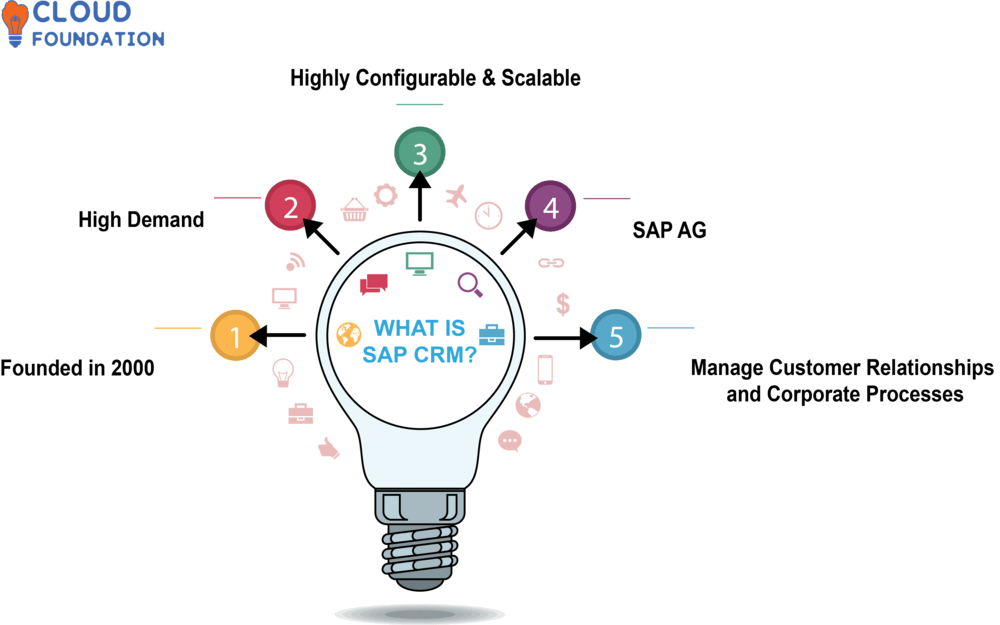
SAP CRM is intended to assist businesses in improving customer relationships by offering a unified picture of client data across all channels and touchpoints.
Analyzing customer behaviour and preferences and adapting interactions to match their needs helps organizations manage client interactions in a more personalized and targeted manner.
Introduction of SAP CRM
SAP CRM (Customer Relationship Management) is a software solution created by SAP AG that enables businesses to manage customer-facing operations more effectively.
It offers a platform for managing consumer interactions across all channels, including marketing, sales, and customer service.
The solution is intended to assist businesses in enhancing their customer relationships by providing a unified, integrated view of customer information.
This also provides tools for analyzing customer behaviour and generating actionable insights for optimizing customer engagement.
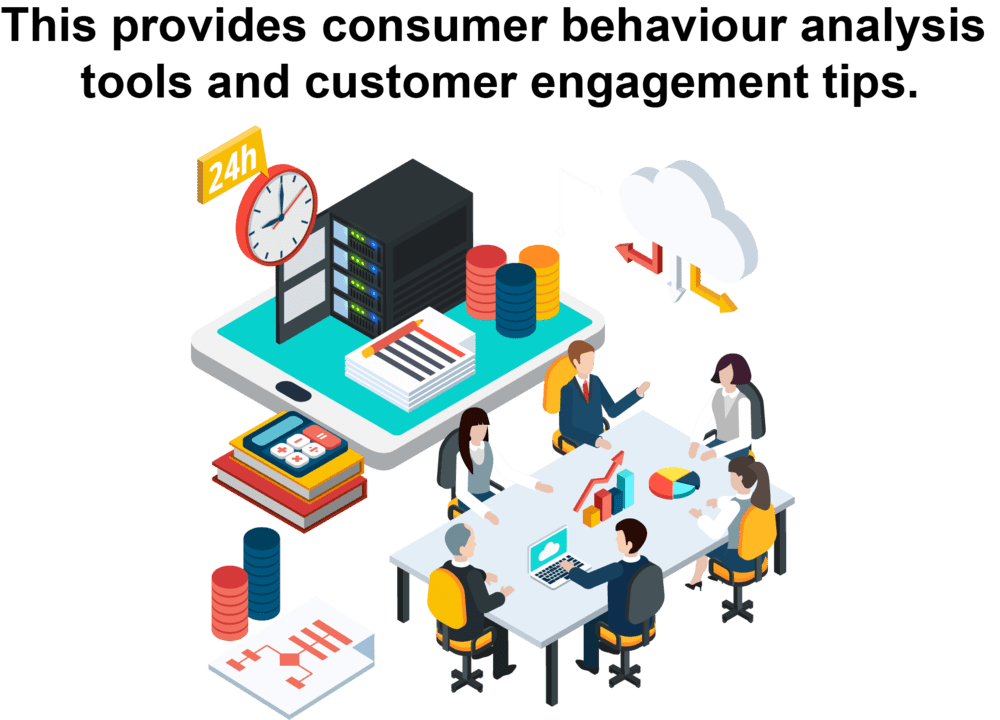
Comprises various features and capabilities, such as sales management, marketing automation, service management, analytics, and reporting.
These tools allow businesses to manage their customer-facing processes more efficiently and effectively and to make decisions based on data that support their overall business objectives.
SAP CRM can be deployed on-premises or in the cloud based on the business’s requirements and preferences.
It is a scalable solution that can be tailored to suit the unique needs of various industries and business models.
SAP CRM is an all-encompassing customer relationship management solution that enables businesses to increase customer satisfaction, boost revenues, and optimize customer-facing processes.
Define SAP CRM
SAP AG’s SAP CRM software helps organizations improve customer connections. It allows firms to manage sales, marketing, and customer service, and customize consumer experiences.
SAP CRM offers Sales, Marketing, Service, Analytics & Reporting. These solutions help companies streamline customer-facing procedures and make data-driven choices that support their goals.
SAP CRM gives enterprises a single, integrated view of client data across all channels to personalize customer interactions and optimize engagement.
It is scalable and flexible for diverse sectors and business models and can be installed on-premises or in the cloud.
SAP CRM improves customer satisfaction, sales, and customer-facing procedures.
What does SAP CRM do, and what is SAP CRM used for?
To help firms better manage their customer-facing activities, SAP offers a software system called SAP Customer Relationship Management.
SAP CRM is an integrated system for handling customer care, marketing, and sales activities.
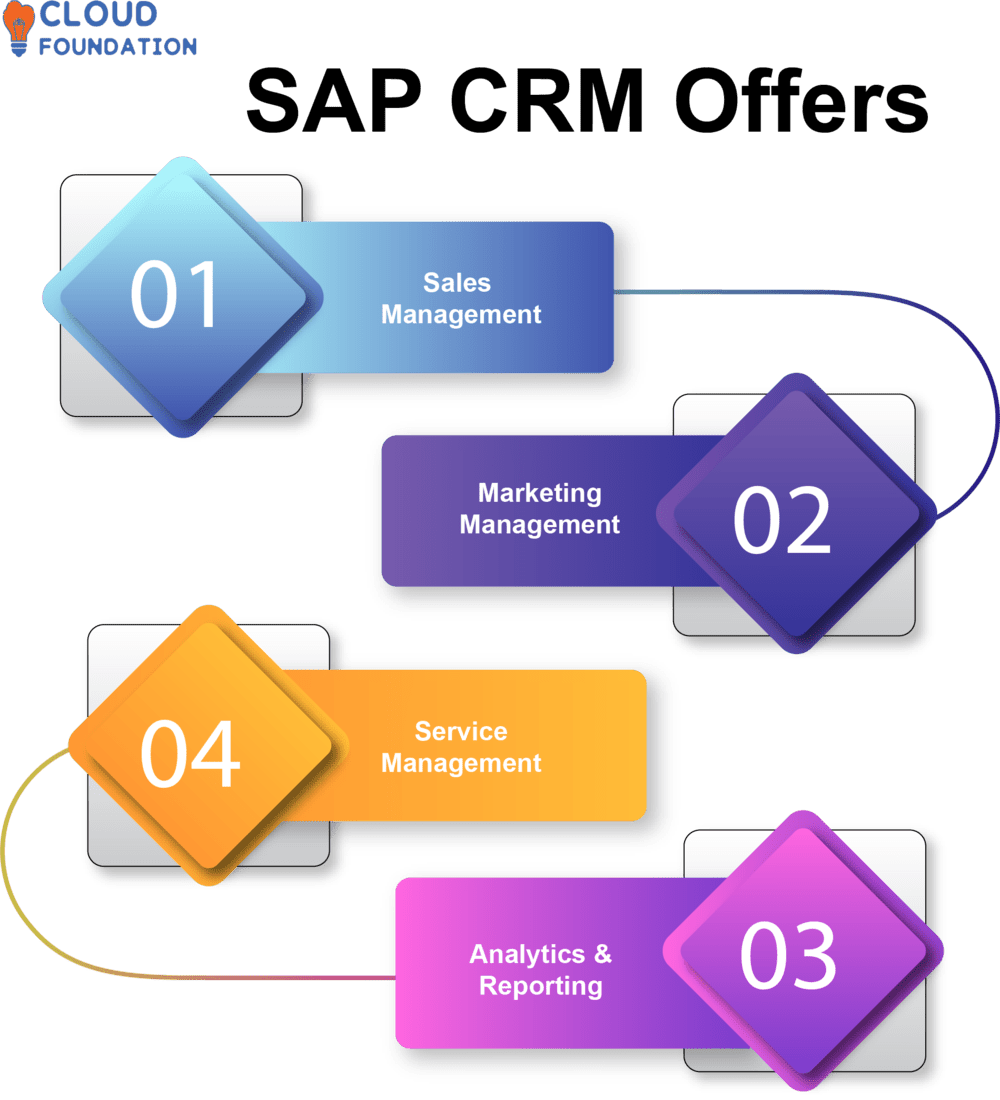
Sales Management: Tools for managing sales processes like sales forecasting, order management, and territory administration are provided by SAP CRM. Because of this, organizations may better manage their sales operations and boost their sales success.
Marketing Management: SAP CRM’s marketing administration capabilities include automation tools, campaign administration, and lead tracking. Businesses may improve their marketing operations management and lead generation with the help of these technologies.
Service Management: Ticketing, service request, and complaint management are just a few of the customer service procedures that may be managed using SAP CRM’s service management solutions.
Analytics and Reporting: To assist organizations and make educated choices, SAP CRM offers tools for analyzing customer data and creating reports.
This helps organizations learn more about their client’s habits and preferences to better connect with them.
What is Master Data in SAP CRM
Master Data is a term used in SAP CRM (Customer Relationship Management) to describe the significant data entities shared across numerous business processes and apps.
Customer data, product data, and organizational data, such as sales organizations, distribution routes, and business codes, are all part of Master Data.
Master Data in SAP CRM is the basis for numerous business activities such as sales, marketing, and service.
Client master data, for example, provides essential information on customers such as name, address, phone number, and email address. It is utilized in sales processes to manage client accounts and activities.
Similarly, product master data includes information on a company’s items, such as product descriptions, price, and availability.
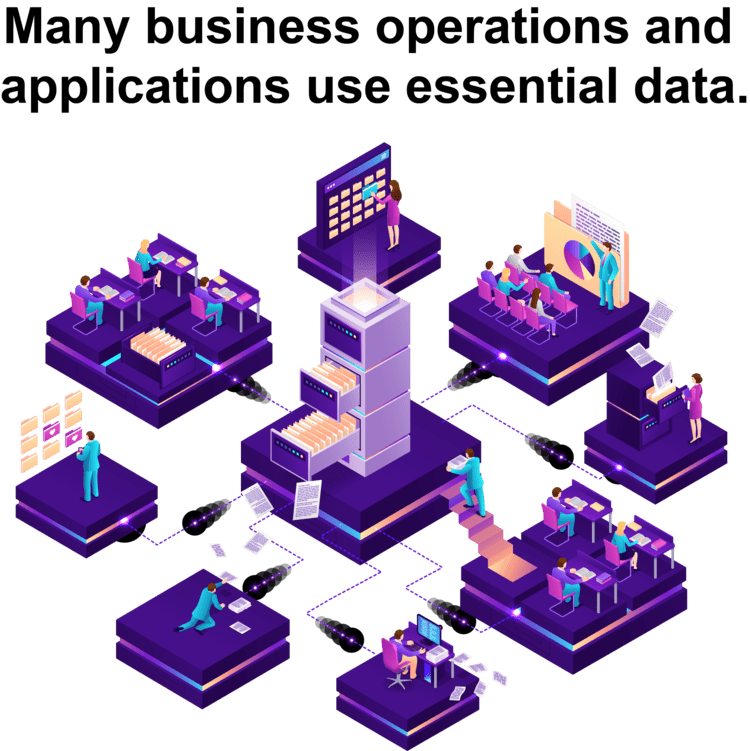
This data is utilized to manage product catalogs and price strategies in sales and marketing procedures.
Organizational master data, on the other hand, outlines the company’s structure and business procedures.
It contains information on sales organizations, distribution routes, and company codes, and it is used in various business processes to identify the organizational units in charge of certain activities.
Master Data in SAP CRM is crucial for assuring data consistency and correctness across many business processes, allowing firms to improve productivity, save costs, and increase customer happiness.
What Is Business Role in SAP CRM?
Business Roles in SAP CRM (Customer Relationship Management) define a user’s access to SAP CRM functions and data. Business Roles improve user experience and access management.
Business Roles are pre-configured SAP CRM apps, components, and transactions for a specific user group or business function.
A Sales Representative’s Business Role may comprise applications for customer account creation, sales order viewing and updating, and sales performance analysis.
SAP CRM administrators build business roles that can be customized for different user groups.
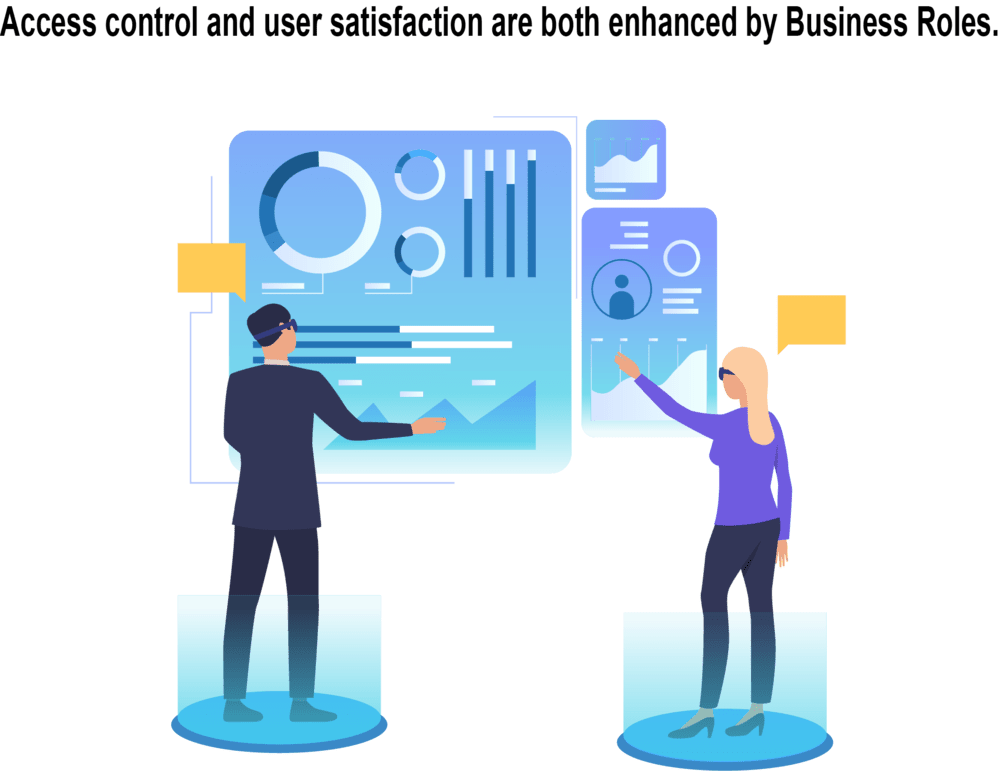
A Sales Manager’s Business Role may contain apps for managing sales teams, tracking sales targets, and forecasting sales.
Users receive business roles based on their job duties. When logging in, SAP CRM users see their Business Role-related applications and transactions.
This ensures users only have access to SAP CRM functions and data relevant to their jobs. Business Roles help users be more productive and efficient by providing the correct SAP CRM data and functionality.
What is SAP CRM Functional?
Functional expertise is needed to Create, Customize, and Implement SAP CRM solutions to match an organization’s demands.
SAP CRM functional consultants collaborate with business stakeholders to transform requirements into SAP CRM functionality.
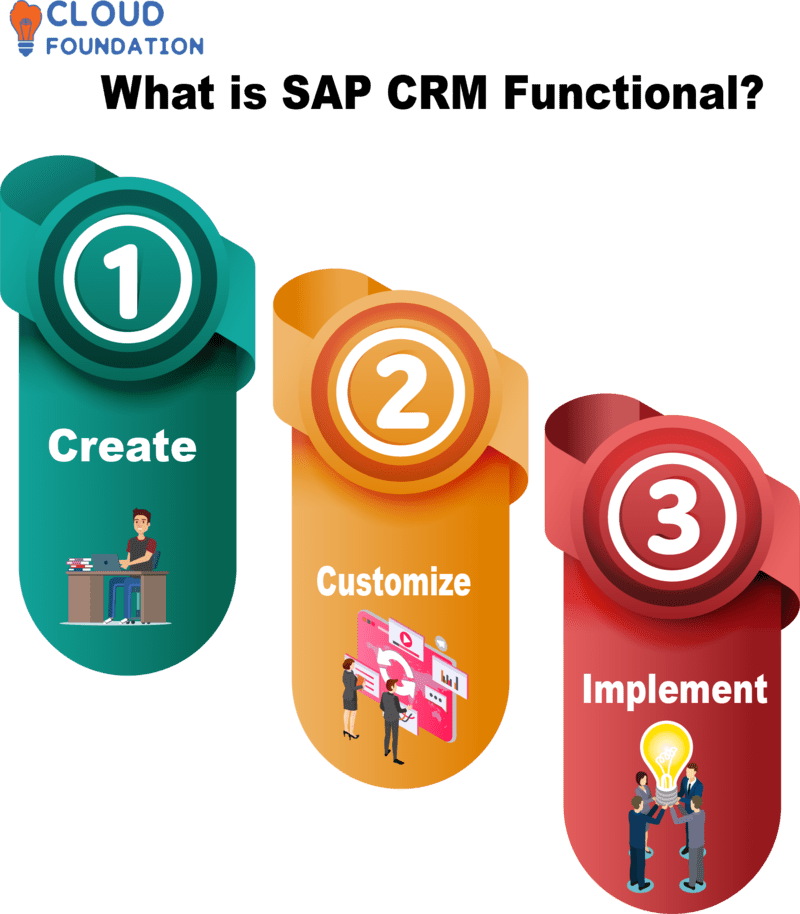
SAP CRM functional consultants configure and customize sales, marketing, and service management functions to match client business needs.
They configure data structures, create and implement workflows, and integrate SAP CRM with other enterprise systems.
Functional consultants for SAP CRM are primarily responsible for the following tasks:
Understanding business needs and how to apply SAP CRM features.
Adapting SAP CRM features to the company’s unique requirements through configuration and customization.
Business process and workflow design and implementation to improve productivity and efficiency.
Developing requirements for modifications and upgrades to existing functionality.
Working with the technical teams to get the SAP CRM solutions running smoothly.
Providing end users with training and continuous support for SAP CRM solutions.
How does SAP CRM work?
SAP CRM is an enterprise software system that assists businesses in better managing their customer interactions and relationships.
It gives organizations a complete perspective of consumer data, allowing them to obtain insights into customer behavior and preferences and personalize their interactions with customers.
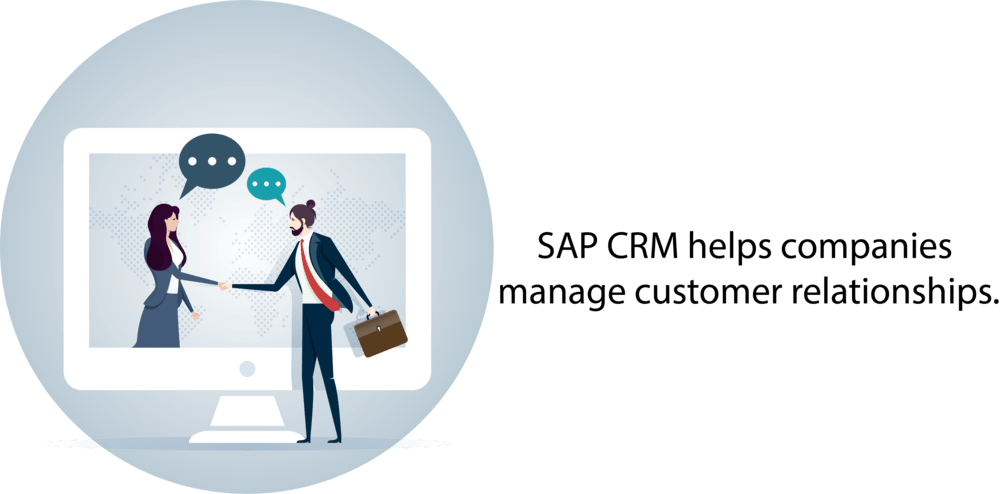
SAP CRM integrates front-office procedures like sales, marketing, and customer care with back-office processes like inventory management, order fulfilment, and accounting.
This connectivity enables businesses to streamline processes, improve customer service, and boost their income.
Why SAP CRM, and what are the benefits of SAP CRM?
Businesses choose SAP CRM for a variety of reasons:
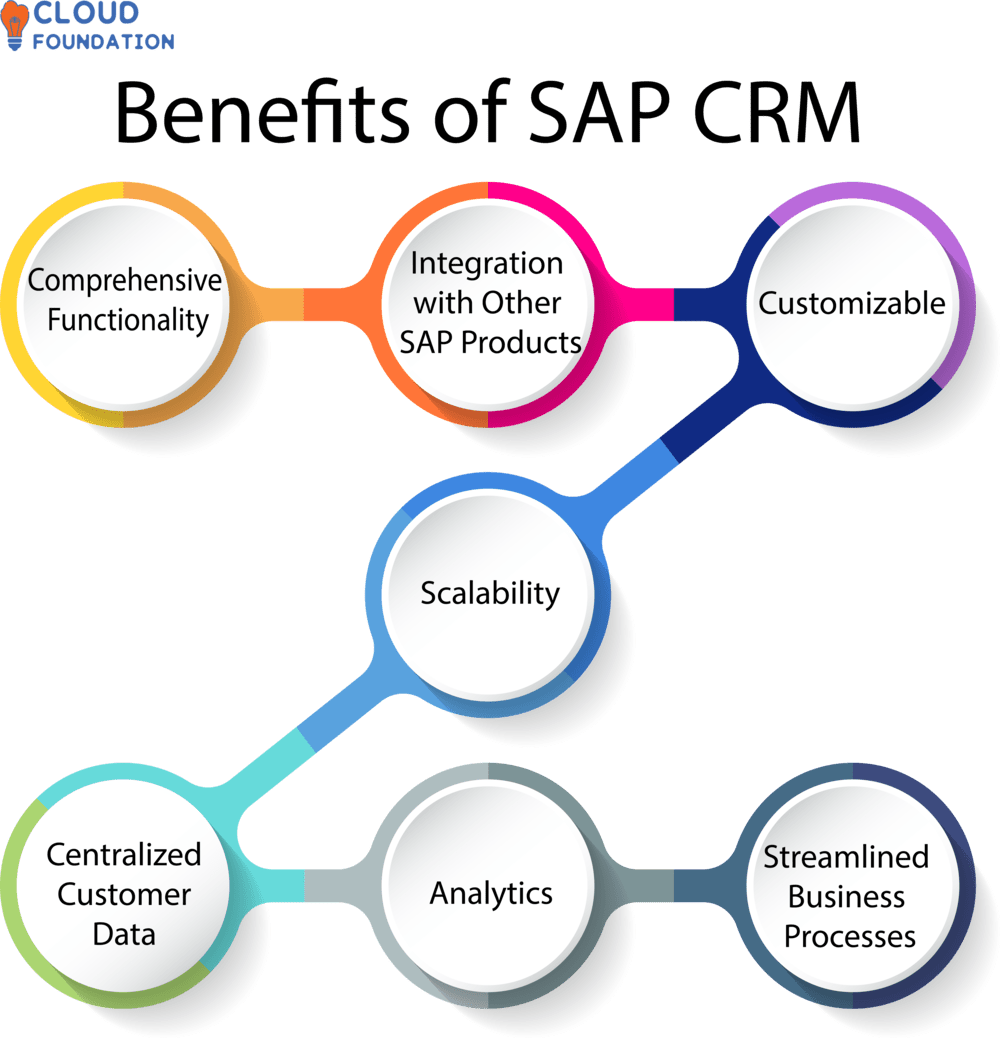
Comprehensive Functionality: SAP CRM offers an extensive array of capabilities for managing consumer interactions and relationships, including sales management, marketing management, and service management.
Integration with Other SAP Products: SAP CRM integrates seamlessly with other SAP products, such as SAP ERP, to provide an end-to-end solution for enterprise-wide process management.
Customizable: SAP CRM is highly configurable, allowing organizations to tailor the solution to their business requirements.
Scalability: SAP CRM is highly scalable and can accommodate the requirements of organizations of all sizes, from small businesses to multinational corporations.
Centralized Customer Data: SAP CRM provides a single, centralized source of customer data, allowing businesses to obtain a 360-degree view of their customers and personalize their interactions.
Analytics: SAP CRM provides reporting and analytics capabilities that enable organizations to gain insights into customer behaviour and preferences and to identify development opportunities.
Streamlined Business Processes: Integrating customer-facing processes with back-office functions such as inventory management, order fulfilment, and accounting, SAP CRM streamlines business processes.
Advantages of SAP CRM
Some of the benefits of SAP CRM are:
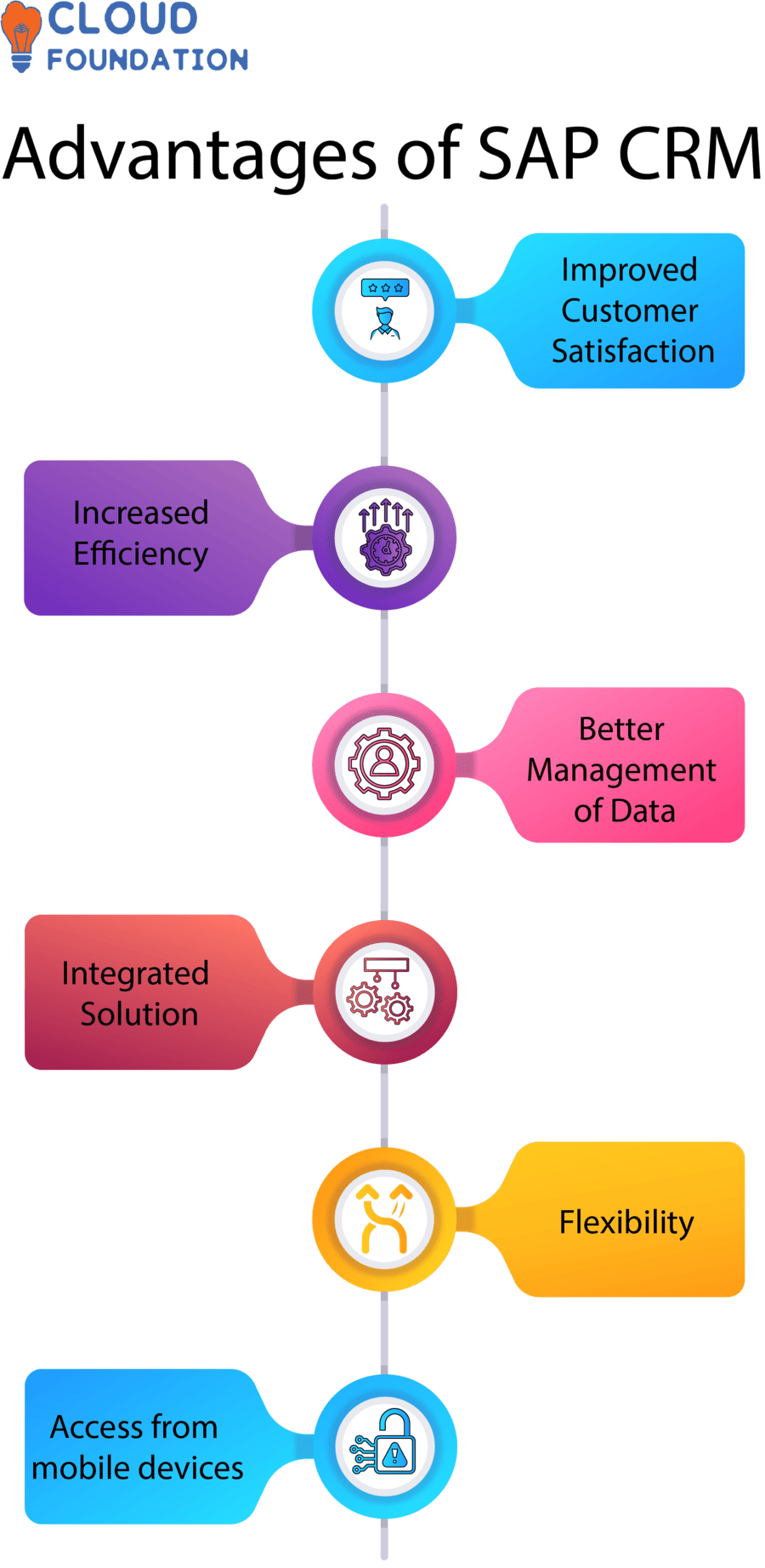
Improved Customer Satisfaction: With SAP CRM, companies can personalize their interactions with customers and give them information that is relevant and up-to-date, which can make the customer’s experience better as a whole.
Increased Efficiency: SAP CRM automates many tasks involved in handling customer interactions, such as lead tracking, customer segmentation, and sales forecasting, which can improve efficiency and productivity.
Better Management Of Data: SAP CRM gives businesses a central place to store customer data, which can help them learn more about their customers and make better choices.
Integrated Solution: SAP CRM can be connected to other SAP solutions, such as SAP ERP (Enterprise Resource Planning) and SAP BW (Business Warehouse), which can help streamline business processes and give a full view of the customer.
Flexibility: SAP CRM can be changed to fit the needs of different industries and businesses. This makes it a flexible way to manage relations with customers.
Access from mobile devices: SAP CRM can be viewed from mobile devices, which can help sales teams stay in touch and get work done while they’re on the go.
What is SAP CRM software, and how to use SAP CRM?
SAP CRM (Client Relationship Management) is a software solution that assists organizations in managing client contacts. It offers a variety of tools and features to assist organizations in improving customer happiness, increasing efficiency, and better understanding their customers.
Businesses often need to go through the following stages to use SAP CRM:
Planning: Before installing SAP CRM, firms must define their goals and objectives for using the software and outline how it will be integrated into their existing systems and processes.
Installation: Depending on their preferences, the SAP CRM software must be deployed on the company’s servers or in the cloud after the planning phase.
Configuration: After installation, the SAP CRM software must be adjusted to match the specific demands of the organization, which includes customizing fields, displays, and reports.
Data migration: If the company already has customer data, it must be transferred to the SAP CRM system. This entails taking data from the previous system, translating it to the SAP CRM format, and feeding it into the new system.
User Training: After the system has been installed, users must be instructed on how to use the SAP CRM software, including how to enter and manage customer data, make reports, and use the system’s numerous tools and capabilities.
Implementation: Once the system is up and running, companies may use SAP CRM to manage customer interactions and relationships, such as lead tracking, sales forecasting, customer segmentation, and marketing campaigns.
To help firms efficiently manage customer interactions, SAP CRM requires planning, installation, configuration, data migration, user training, and implementation.
SAP CRM Modules
SAP CRM (Customer Relationship Management) is a suite of modules designed to streamline and automate the management of all aspects of a company’s interactions with its customers.
All bases are covered by the SAP CRM suite of modules, which includes sales, marketing, service, and analytics.
The SAP CRM add-ons include the following:
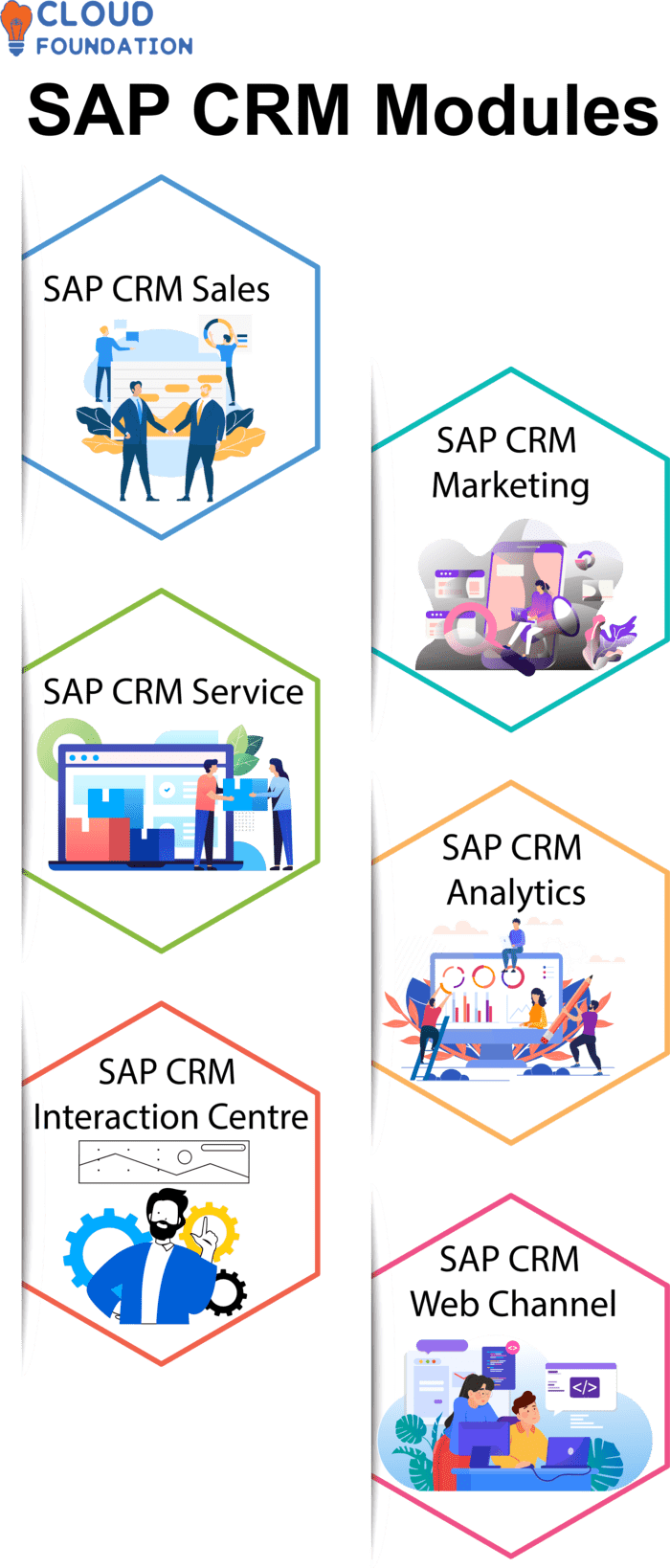
SAP CRM Sales: This tool helps with the sales process, from finding leads to filling orders. It has sales tracking, opportunity, quote, and order management.
SAP CRM Marketing: This module gives you tools for planning and running marketing efforts, such as campaign management, lead management, and market segmentation.
SAP CRM Service: This module handles customer service processes, such as managing service requests, contracts, and data.
SAP CRM Analytics: This module gives organizations tools for business information and reporting that help them look at customer data and learn more about their customer base.
SAP CRM Interaction Centre: This module offers a centralized communication platform for handling customer interactions across multiple channels, such as phone, email, chat, and social media.
SAP CRM Web Channel: This tool helps with e-commerce and self-service for customers, such as managing online orders, product catalogs, and web analytics.
What are the best ways to learn SAP CRM?
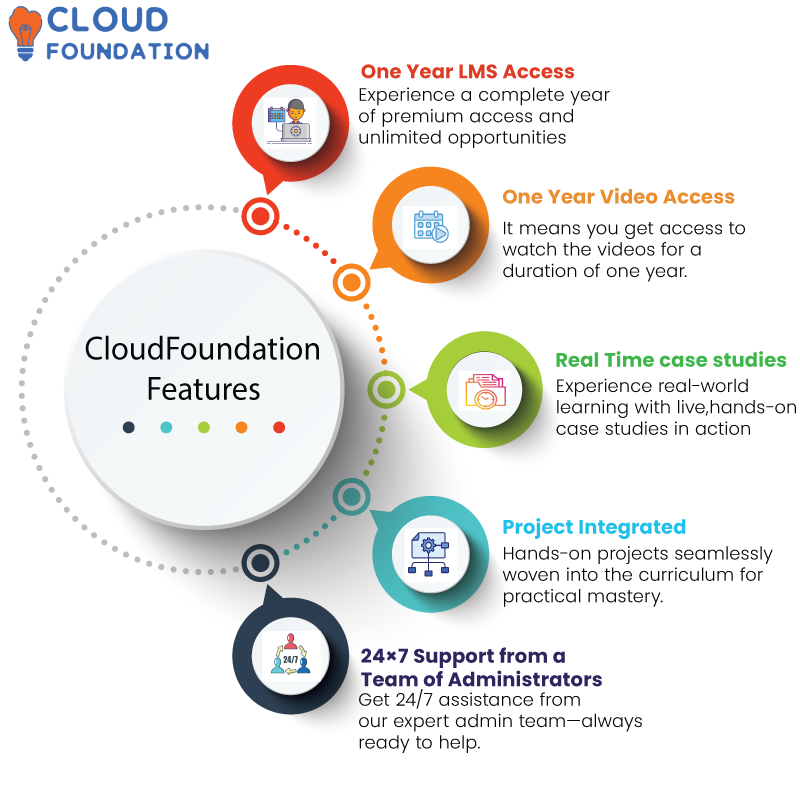
Companies use SAP CRM to manage customer relationships and corporate processes. SAP CRM training requires theory and practice.
Effective SAP CRM learning methods include:
SAP CRM courses cover sales, marketing, and customer care. CloudFoundation provides theoretical and practical program knowledge.
These resources might help you understand SAP CRM and its modules. SAP CRM training and SAP blogs are examples.
Practising SAP CRM sales, marketing, and service responsibilities in a sandbox will help you learn. If you have any doubts, the support team will help you with this.
CloudFoundation provides you with SAP CRM expertise. These certifications are universal and can give you an edge in the job market.
Learn on the job if your job requires SAP CRM. CloudFoundation will provide you with real-world SAP CRM experience.

Saniya
Author



